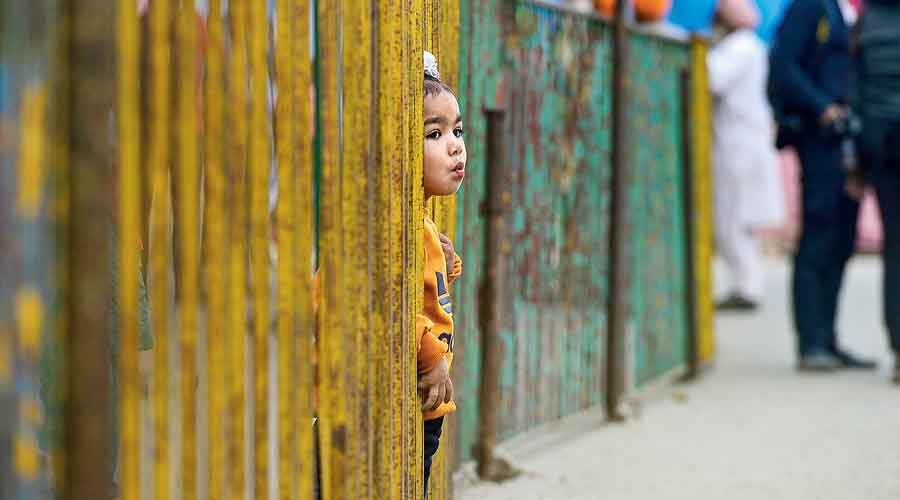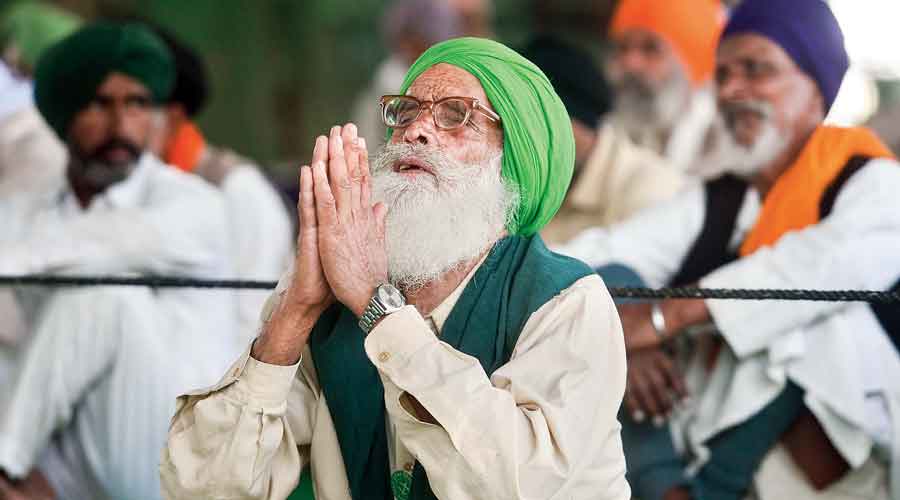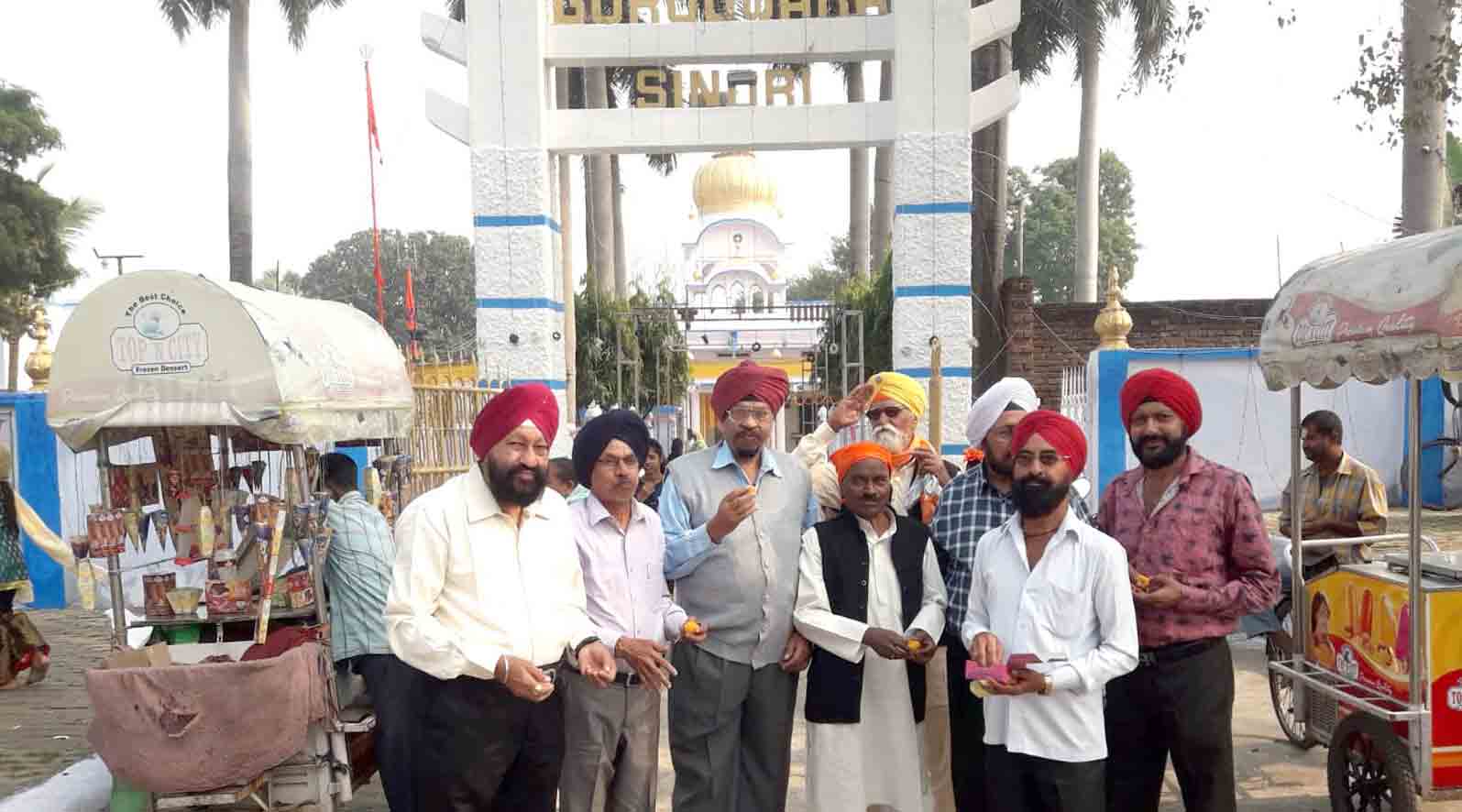The protesting farmers on Friday thanked Prime Minister Narendra Modi for announcing the repeal of the contentious farm laws but will continue their protests till the process is complete and their other main demand for a law guaranteeing a minimum support price for all farm produce is met.
Next week’s protest plans by the Samyukta Kisan Morcha (SKM), which has been spearheading the farmer protests across the country since last November, stand unchanged. These include a Muzaffarnagar-like mahapanchayat in Lucknow on Monday as a prelude to marking the first anniversary of the protest at Delhi’s borders.
Having got a government that makes a virtue of being unbending reverse a decision it was deeply invested in, the farmers are in no mood to call off their yearlong protest without the MSP guarantee law.
They know managing another mobilisation of such a scale — and keeping it largely peaceful — is not something that can be repeated in a heartbeat.
If anything, the demand for a law guaranteeing MSP resonates more in poll-bound Uttar Pradesh. State-level Bharatiya Kisan Union leader Rakesh Tikait set the tone for the next course of action — even before the SKM had spoken — by stating the repeal was only half a victory.
In its statement, issued about an hour after Modi’s address, the SKM welcomed the decision and said it would wait for the announcement to take effect through due parliamentary procedure.

A child peeps through a barricade at the Singhu border in New Delhi on Friday. PTI photo
“If this happens, it will be a historic victory of the one-year-long farmers’ struggle in India. However, nearly 700 farmers have been martyred in this struggle. The central government’s obstinacy is responsible for these avoidable deaths, including the murders at Lakhimpur Kheri,” it said.
The statement reminded Modi that the agitation was not just for the repeal of the three “black laws” but also for a statutory guarantee of remunerative prices for all agricultural produce and for all farmers.
“This important demand is still pending. So also is the withdrawal of the Electricity Amendment Bill,” the SKM said.
In a more detailed statement in the evening, the Morcha said the farmers’ struggle had led to a reinstatement of democracy and the federal polity in India.
Several of the farmer union leaders put out social media posts urging supporters not to leave the protest sites because of Modi’s announcement.
The SKM said the mobilisation to mark the first anniversary of the protest on November 26 was under way and was being intensified, particularly for the kisan mahapanchayat in Lucknow.
The Morcha’s core committee is likely to meet on Saturday. This is to be followed by a general body meeting on Sunday to take the final call on the course of the movement.
For now, all seem ready for the long haul, keen to use the movement’s momentum — buoyed by the government’s climb-down — to realise the long-pending demand for an MSP law.
The farmers’ Mission UP and Mission Uttarakhand too stand for now. The farmers plan to campaign against the BJP during the two Assembly elections without supporting any particular party — a repeat of what they had done during the last round of state polls this year.
The SKM’s claim that the farmers’ struggle has led to the reinstatement of democracy is not just hyperbole, for they have presented a template to the Opposition to peacefully stand up to a government that had used every trick in the book to break the peasants.
Although the 40 unions that together formed the SKM and the others that supported the Morcha from outside come from various political persuasions, they were able to bury their differences and provide collective leadership to the movement with a single-minded focus on the agenda.
Differences emerged at various points and several union leaders were suspended for short periods for differing with the collective view of the SKM. But the protests continued against all odds, which included an unleashing of the brute force of the State against them, the vagaries of nature, and the pandemic.
Through it all, the leadership managed to ensure the movement remained largely peaceful in the face of extreme provocation from mischief-makers, ably aided by large sections of the television media.
The farmers celebrated the idea of India enshrined in the Constitution, refused to succumb to divide-and-rule politics, and accepted mistakes on their part and the instances of lawbreaking within their ranks.
They held their ground even when dragged to the Supreme Court where they refused to engage with the court-appointed committee, insisting there was nothing to mediate on since they wanted total repeal of the three laws.
Anil Ghanwat, one of the members of the Supreme Court-appointed committee and president of the Shetkari Sanghatana, described the decision to repeal the farm laws as regressive, alleging Modi had chosen politics over farmer welfare.
The Sanghatana has always favoured opening up the farm sector. Ghanwat said the government had not done its job properly, resulting in the agitation.
“This decision is a political decision. The government wants to win in all the states which have elections in the coming months,” he said.












